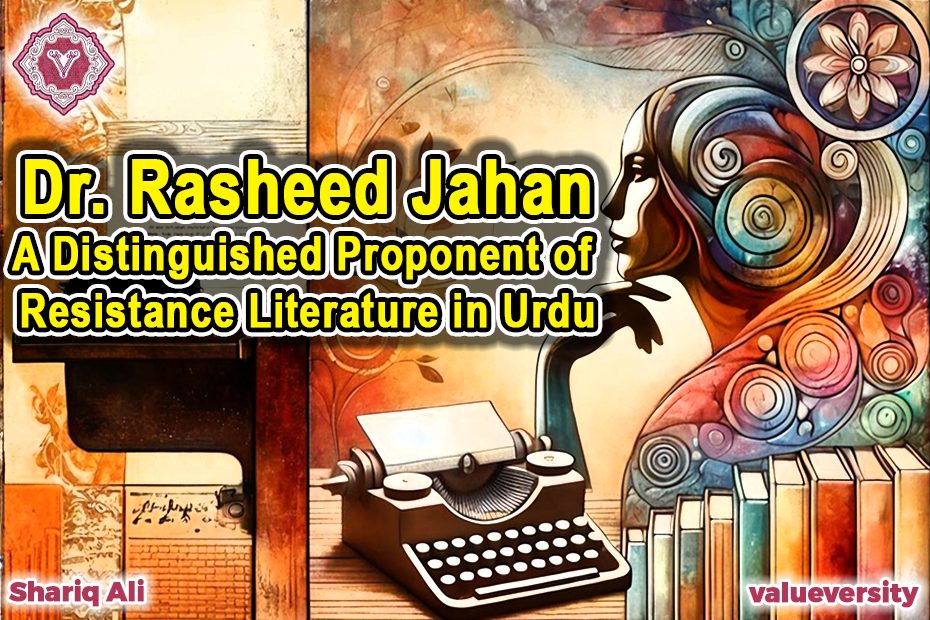Dr. Rasheed Jahan: A Distinguished Proponent of Resistance Literature in Urdu
Research & edit
Shariq Ali
Valueversity
Dr. Rasheed Jahan (1905–1952) was the first female short story writer in Urdu, a progressive author, and a champion of social reform who played a pivotal role in amplifying women’s voices in Urdu literature. She hailed from an enlightened and educated family in Aligarh. Her father, Sheikh Abdullah, established the Women’s College at Aligarh Muslim University to promote female education, while her mother, Waheed Shahjahan Begum, launched the magazine Khatun to raise awareness among women.
Early Life and Education
Rasheed Jahan received her early education in Aligarh and Lucknow. She later completed her MBBS from Lady Hardinge Medical College, Delhi, and began her professional career as a doctor in 1934. The same year, she married the renowned Urdu writer Mahmood-uz-Zafar, who was also an active member of the Progressive Writers’ Movement.
Joining the Progressive Writers’ Movement
Dr. Rasheed Jahan was one of the founding members of the Progressive Writers’ Movement. Her participation in the first Progressive Writers’ Conference held in Lucknow in 1936 symbolized her commitment to the movement. She openly wrote about issues such as social injustice, gender equality, and the plight of women. She was also a founding member of the Indian People’s Theatre Association (IPTA), where she created plays that highlighted social awareness.
Literary Contributions
Dr. Rasheed Jahan first gained prominence in 1932 with the publication of the short story collection Angarey. The stories and plays included in this book delivered a scathing critique of societal evils, which faced significant resistance and was banned by the British government. Later, her collection Aurat aur Dusre Afsane (Woman and Other Stories) was published in 1937, vividly portraying women’s issues and emotions. Her other notable works include Shola-e-Jawwala and Woh Aur Dusre Afsane, which firmly established the perspective of women in Urdu literature.
Death and Legacy
In 1952, Rasheed Jahan traveled to Moscow for cancer treatment, where she passed away on July 29. Her life and contributions will forever be remembered in Urdu literature, as she transformed literature from mere entertainment into a tool for social reform.
Dr. Rasheed Jahan was a torchbearer who not only sought to improve the lives of women but also introduced a new perspective to Urdu literature. Her name will forever shine among the luminous stars of the Progressive Writers’ Movement.
